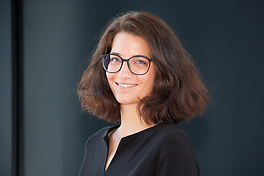Rostock Demographic Seminar Series
How Are Gender Inequalities and Fertility Linked in an Era of Family Complexity?
Nicole Hiekel
Hybrid Presentation, October 18, 2022
Nicole Hiekel from the Max Planck Institute for Demographic Research (MPIDR) introduced her new Independent Research Group on Gender Inequalities and Fertility in this talk.
Abstract
The major demographic trends in family structures and change across high-income countries are well known: fertility rates have declined, childbearing occurs later, not necessarily in marital unions or with one lifelong partner only. Relationships forms have become more diverse and less stable. But similar family life courses lead to different outcomes for men and women. That is why gender inequalities are an important factor in demographic research as they may either determine, moderate or result from fertility and family change.
The Independent Research Group “Gender Inequalities and Fertility” at MPIDR will focus on explanations why family life events such as union formation, separation, parenthood and family extension play out differently for women and men. Research conducted in this group will ultimately contribute to demography making a leap forward in understanding the role of gender (in)equalities in trends of fertility rates in an era of unprecedented family complexity.
In this talk, Nicole Hiekel, head of the research group, will introduce the research group and its program.
About the Speaker

© MPIDR
Nicole Hiekel is Head of the Independent Research Group “Gender Inequalities and Fertility” at the Max Planck Institute for Demographic Research (MPIDR) in Rostock, Germany. The research conducted in this group focuses on explanations why family life events such as union formation, separation, parenthood and family extension play out differently for women and men.
Nicole received her PhD in Sociology (2014) from VU University Amsterdam with her dissertation, entitled "The different meanings of cohabitation across Europe". She conducted this research at the Netherlands Interdisciplinary Demographic Institute (NIDI) in The Hague. She was an Assistant Professor at the Department of Sociology and Social Psychology at the University of Cologne and senior researcher at the German Youth Institute in Munich before joining MPIDR in June this year.
At the intersection of sociology and demography, her research has contributed to demographic theory building on how social inequalities interact with demographic processes and applied innovative methods to study the intergenerational transmission of relationship behavior.